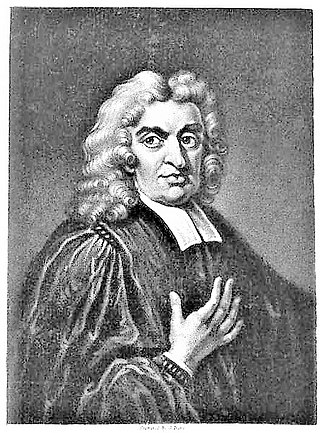Related Research Articles

Thomas Birch was an English historian.

Anthony Wood, who styled himself Anthony à Wood in his later writings, was an English antiquary. He was responsible for a celebrated Hist. and Antiq. of the Universitie of Oxon.

Rev. Francis Blomefield, FSA, Rector of Fersfield in Norfolk, was an English antiquarian who wrote a county history of Norfolk: An Essay Towards a Topographical History of the County of Norfolk. It includes detailed accounts of the City of Norwich, the Borough of Thetford and all parishes in the southernmost Hundreds of Norfolk, but he died before completing it. This was done by a friend, Rev. Charles Parkin. The Norfolk historian Walter Rye related that although no portrait of him was known to exist, Blomefield closely resembled the astronomer John Flamsteed, whose portrait was used to depict Blomefield on the frontispiece of one of his volumes. His history of Norfolk was reissued in London in 11 volumes by William Miller in 1805–1810, the last seven being by Parkin.
Samuel Ayscough (1745–1804) was a librarian and indexer, who was described as the "Prince of Index Makers".

White Kennett was an English bishop and antiquarian. He was educated at Westminster School and at St Edmund Hall, Oxford, where, while an undergraduate, he published several translations of Latin works, including Erasmus' In Praise of Folly.
The Reverend Thomas Pyle was a Church of England clergyman and religious controversialist.

Thomas Martin, known as "Honest Tom Martin of Palgrave", was an antiquarian and lawyer.

John Gough Nichols (1806–1873) was an English painter and antiquary, the third generation in a family publishing business with strong connection to learned antiquarianism.

Pentney is a village and civil parish in the English county of Norfolk, located about 8 miles (13 km) south east of King's Lynn placing it about halfway between King's Lynn and Swaffham on the A47 road. It covers an area of 10.39 km2 (4.01 sq mi) and had a population of 387 in 184 households at the 2001 census, increasing to 544 at the 2011 Census. For the purposes of local government, it falls within the district of King's Lynn and West Norfolk. It is in the valley of the River Nar, a tributary of the River Great Ouse.
John Le Neve (1679–1741) was an English antiquary, known for his Fasti Ecclesiæ Anglicanæ, a work of English church biography which has been published in many subsequent editions.

William Cole, was a Cambridgeshire clergyman and antiquary, known for his extensive manuscript collections on the history of Cambridgeshire and of Buckinghamshire.
Simon Gunton (1609-1676) was an English clergyman and antiquary.

Hudson Gurney was an English antiquary and verse-writer, also known as a politician. He was a member of the Gurney family.

William Richards was a Welsh Baptist minister; he spent much of his life in King's Lynn, in Norfolk, and wrote a history of the town. His other publications included a Welsh-English dictionary.
John, D.D. Barret, was an English Carmelite friar and after the Reformation an Anglican clergyman.

Mark Noble (1754–1827) was an English clergyman, biographer and antiquary.
James Wadsworth (1604–1656?), was an English man who on a sea voyage to Spain in 1622 was captured by Moorish pirates and sold into slavery. A year later his freedom was purchased and he joined his parents in Madrid. After spending a number of years on the European continent, he returned to England, where he and a group of fellow pursuivants found and delivered suspected Roman Catholics to the authorities for trial and punishment.

Thomas Harwood D.D. (1767–1842) was an English cleric, schoolmaster and antiquarian.

George Alfred Carthew was an English antiquarian, local historian, and genealogist, though he worked as a solicitor for most of his life.

John Kirkpatrick was a British antiquarian.
References
- General references
David Stoker, (1994). Benjamin Mackerell, Antiquary, Librarian, and Plagiarist. Norfolk Archaeology, 42 (1), 1–12. https://doi.org/10.5284/1077054
[Blomefield's Norfolk (8vo edit.), iv. 161; Hist. of Norfolk (by J. Chambers); Gough's British Topography, ii. 5, 11, 19; Woodward's Norfolk Topographer's Manual, p. 250 n.; Eye's Norfolk Topography (Index Soc.); East Anglian, new ser. i. 344, 372; Norfolk Archaeology, ii. 403, iii. 241, 315, viii. 334.]
- Dictionary of National Biography
![]() This article incorporates text from a publication now in the public domain : Goodwin, Gordon (1893). "Mackerell, Benjamin". In Lee, Sidney (ed.). Dictionary of National Biography . Vol. 35. London: Smith, Elder & Co.
This article incorporates text from a publication now in the public domain : Goodwin, Gordon (1893). "Mackerell, Benjamin". In Lee, Sidney (ed.). Dictionary of National Biography . Vol. 35. London: Smith, Elder & Co.